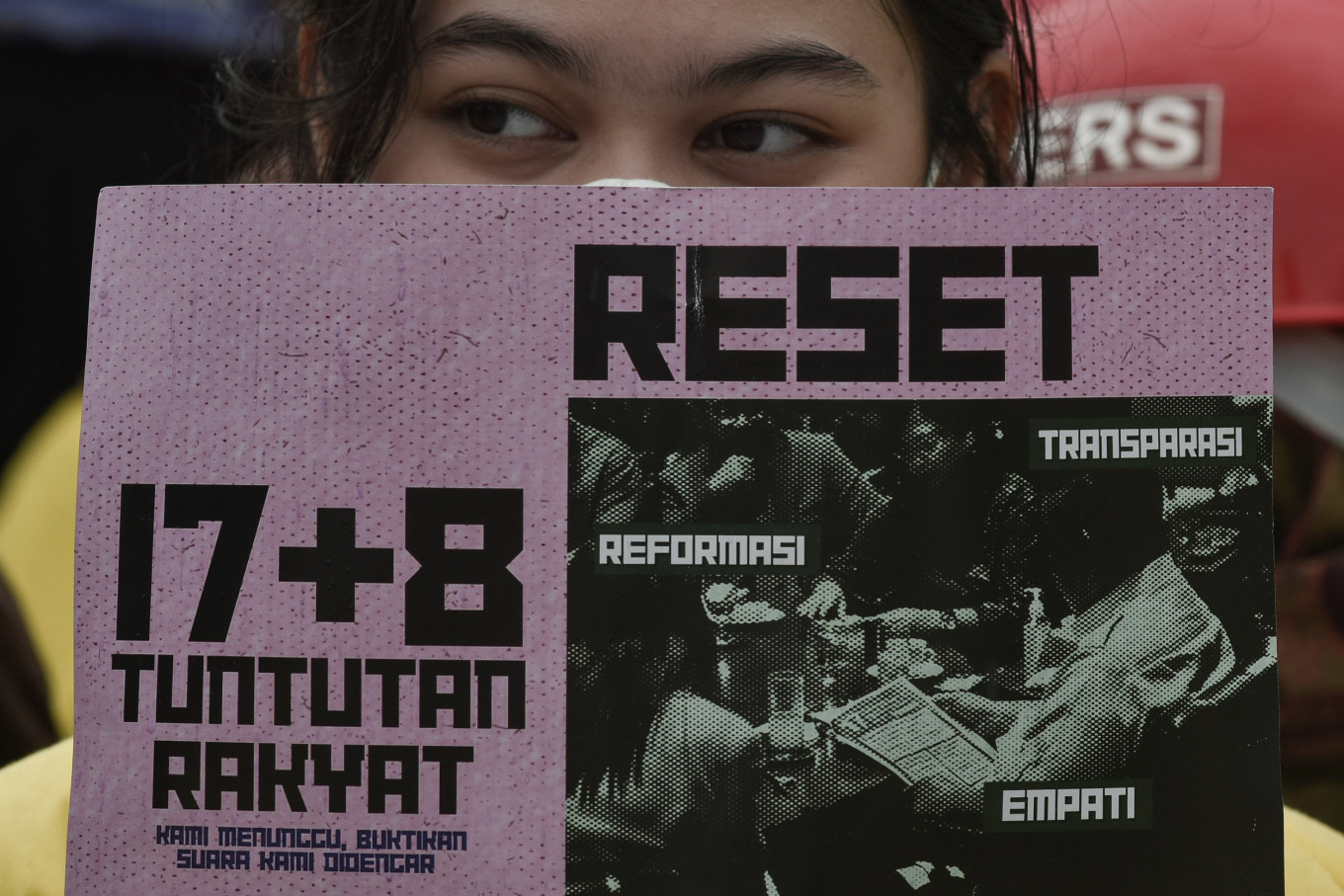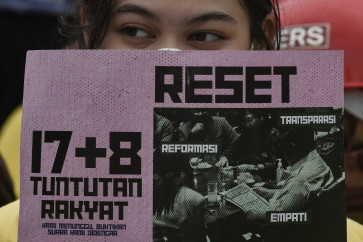Popular Reads
Top Results
Can't find what you're looking for?
View all search resultsPopular Reads
Top Results
Can't find what you're looking for?
View all search resultsInequality and the demand for emancipatory democracy
This striking disparity renders democracy meaningless. On one hand, people have the right to vote, on the other, they are trapped in an increasingly alienating economic and political system.
Change text size
Gift Premium Articles
to Anyone
I
n recent weeks, a wave of large-scale demonstrations has rocked countries worldwide, from Indonesia, Nepal and the Philippines to the United States and several European nations like the United Kingdom and France.
The masses have filled the streets with one common demand: An end to deep dissatisfaction with economic inequality, stagnant welfare and state policies that seem to exclusively benefit the elite.
In France, for example, over 200,000 people took part in the "Block Everything" movement on the first day of Prime Minister Sébastien Lecornu's tenure, sharply rejecting austerity measures and budget cuts. This phenomenon suggests these protests are not just spontaneous outbursts but rather a reflection of the increasingly acute structural crises of the neoliberal era.
Socio-economic inequality is the main driver of these protests. In Indonesia, despite economic growth of around 5 percent per year, wealth distribution is highly unequal. The Gini ratio was still at 0.388 in 2023, with the richest 20 percent controlling almost half of the total national income according to Statistics Indonesia (BPS).
In Nepal, the open unemployment rate reached 11.4 percent in 2022, one of the highest in South Asia. In the US, the wealth gap is increasingly extreme: CEOs of large companies earn an average of 351 times more than ordinary workers, while Black families have only 15 percent of the average wealth of white families.
This striking disparity renders democracy meaningless. On one hand, people have the right to vote, on the other, they are trapped in an increasingly alienating economic and political system. Waves of demonstrations, riots and even looting are expressions of collective anger when formal channels fail to address their aspirations.
Upon closer observation, the common thread running through these demonstrations is the widening economic gap, particularly in countries that claim to be democratic. These are nations that allow civil liberties yet have economic structures largely controlled by the wealthy..



















